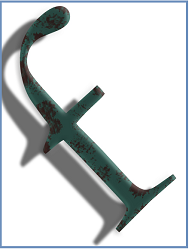O ENSINO DE LÍNGUA PORTUGUESA EM ANGOLA: REFLEXÕES METODOLÓGICAS EM CONTEXTO MULTLINGUE
DOI:
https://doi.org/10.22481/folio.v12i1.6604Palabras clave:
Ensino; Língua portuguesa; Metodologia; Multilinguismo; AngolaResumen
O português é a única língua oficial de Angola, embora havendo mais de vinte línguas do grupo bantu e khoisan convivendo com diversas línguas europeias e asiáticas. Sendo o português a língua obrigatória na educação é necessário refletir sobre como ensinar em contexto multilíngue. A pesquisa debateu caminhos metodológicos que favorecem um ensino de qualidade e que realmente atenda a realidade angolana. É uma pesquisa bibliográfica que busca leituras que debatem questões da variação linguística e a didática do ensino. A pesquisa mostrou como a formação do professor é importante na transmissão de competências visando a qualidade de aprendizagem em português. Dado o contexto em que se processa o ensino e aprendizagem do português em Angola observa-se a ausência de condições infraestruturais para além da falta da interação entre professor, aluno, pais e Ministério da Educação. A existência de turmas com alunos de português como L1 e L2 torna o ensino complexo porque a metodologia e os materiais deveriam ser diferentes. As interferências das línguas africanas no português obrigam uma atualização metodológica constante do professor de português para que possa responder à realidade angolana desafiando a complexidade à variedade angolana do português que é diferente do português de Portugal.
Descargas
Citas
2. ANGOLA. Constituição da República de Angola. Luanda: Assembleia Nacional, 2010.
3. BENGUI, Francisco Pedro. Interferências linguísticas dos alunos da escola do I ciclo do ensino secundário de Buengas-Uige. Monografia apresentado no Instituto Superior de Ciências de Educação do Uíge. 2018
4. CHICUNA, Alexandre Mavungo. Portuguesismos nas línguas bantu: para um dicionário portugues-kiyombe. 3.ed. Lisboa: Collibro, 2018.
5. CUNHA, Celso; CINTRA, Lindley. Nova gramática do português contemporâneo. 5.ed. Rio de Janeiro: Lexikon, 2008.
6. FASI, Mohammed El. (Org.). História geral da África: África do século VII ao XI. vol.3. Brasília: UNESCO, 2010.
7. INSTITUTO NACIONAL DE ESTATÍSTICA. Resultados definitivos recenseamento geral da população e habitação,2014. Luanda: INE, 2016.
8. LABOV, William. Padrões sociolinguísticos. São Paulo: Parábola, 2008.
9. LIBANEO, José Carlos. Didática. 2.ed. São Paulo: Cortez, 2013.
10. LUFT, Celso Pedro. Ensino e aprendizado da língua materna. São Paulo: Globo, 2007.
11. MAYEMBE, Ndombele. Reforma educativa em angola: a monodocência no ensino primário em Cabinda. 301p. (Tese). Universidade Federal de Minas Gerais, Faculdade De Educação, Belo Horizonte, 2016.
12. MIGUEL, Maria Helena. Dinâmica da Pronominalização no Português. Luanda: Editor Arlindo Isabel, 2014.
13. NDOMBELE, Eduardo David. Gestão de multilinguismo em angola: reflexão sobre o ensino de línguas angolanas de origem bantu na província do Uíge. Verbum: Cadernos de Pós-Graduação. Vol.6, n.1., p. 33-44, jan.2017.
14. NETO, Muamba Garcia. Aproximação linguística e experiência comunicacional. Luanda: Editora Mayamba, 2012.
15. NGULA, Amadeu. A escolarização em África. Roma: EdizioniViverein, 2005.
16. NIANE, Djibril Tamsir (Org.). História geral da África: África do século XII ao XVI. vol.4. 2.ed.rev. Brasília: UNESCO, 2010.
17. PALMA, Dieli Vesaro; TURAZZA, Jeni Silva. Educação linguística: reinterpretação do ensino-aprendizagem por novas práticas pedagógicas. PALMA, Dieli Vesaro; TURAZZA, Jeni Silva. (Org.). Educação linguística e o ensino de língua portuguesa: algumas questões fundamentais. São Paulo: Terracota, 2014. p. 23-61.
18. PEREIRA, Cátia Luciana; FRANCO, Maria Ignez S. De. M. Nova concepção do professor na perspectiva da educação linguística: formação inicial e transposição didática. In: PALMA, Dieli Vesaro; TURAZZA, Jeni Silva. (Org.). Educação linguística e o ensino de língua portuguesa: algumas questões fundamentais. São Paulo: Terracota, 2014. p. 99-120.
19. PIMENTEL, Edno. Um cubico sem aspas. In: Ciberdúvidas da Língua Portuguesa. 10 jul. 2015 Disponível em: https://ciberduvidas.iscte-iul.pt/artigos/rubricas/idioma/um-cubico-sem-aspas/3199 [consultado em 26-04-2020]”
20. QUIVUNA, Manuel. O Ensino de português em contexto bilingue/Plurilingue Angolano-Sete Estudos. Lisboa: Edições Colibri, 2014.
21. SELBACH, Simone. Língua portuguesa e didática. Petrópolis: Vozes, 2013.
22. SIMOES, Darcília Simões. Considerações sobre a fala e a escrita: fonologia em nova chave. São Paulo: Parábola, 2006.
23. TIMBANE, Alexandre António; REZENDE, Meire Cristina Mendonça. A língua como instrumento opressor e libertador no contexto lusófono: o caso do Brasil e de Moçambique. Travessias. Vol. 10, nº3, 28.ed., p. 338-408, 2016.
24. _______; VICENTE, José Gil. O plurilinguismo em Moçambique: debates e caminhos para uma educação linguística inovadora. RILP - Revista Internacional em Língua Portuguesa, nº31, p. 91-112, 2017.
25. _______; SANTANA, Yuran Fernandes Domingos; AFONSO, Euclides Victorino Silva. A cultura hip-hop e os angolanismos léxico-semânticos em Yannick Afroman: a língua e a cultura em debate. Afluente, UFMA/Campus III, v.4, n.12, p. 104-128, mai./ago. 2019.
26. _______; FERREIRA, Liliana Bispo. A família, a escola e o aluno: quem ensina o que e para quê? in: JORGE, Welington Junior (Org.). Abordagens teóricas e reflexões sobre a educação presencial a distância e corporativa. Maringá: Uniedusul, 2019. p. 198-214.
Descargas
Publicado
Cómo citar
Número
Sección
Licencia






